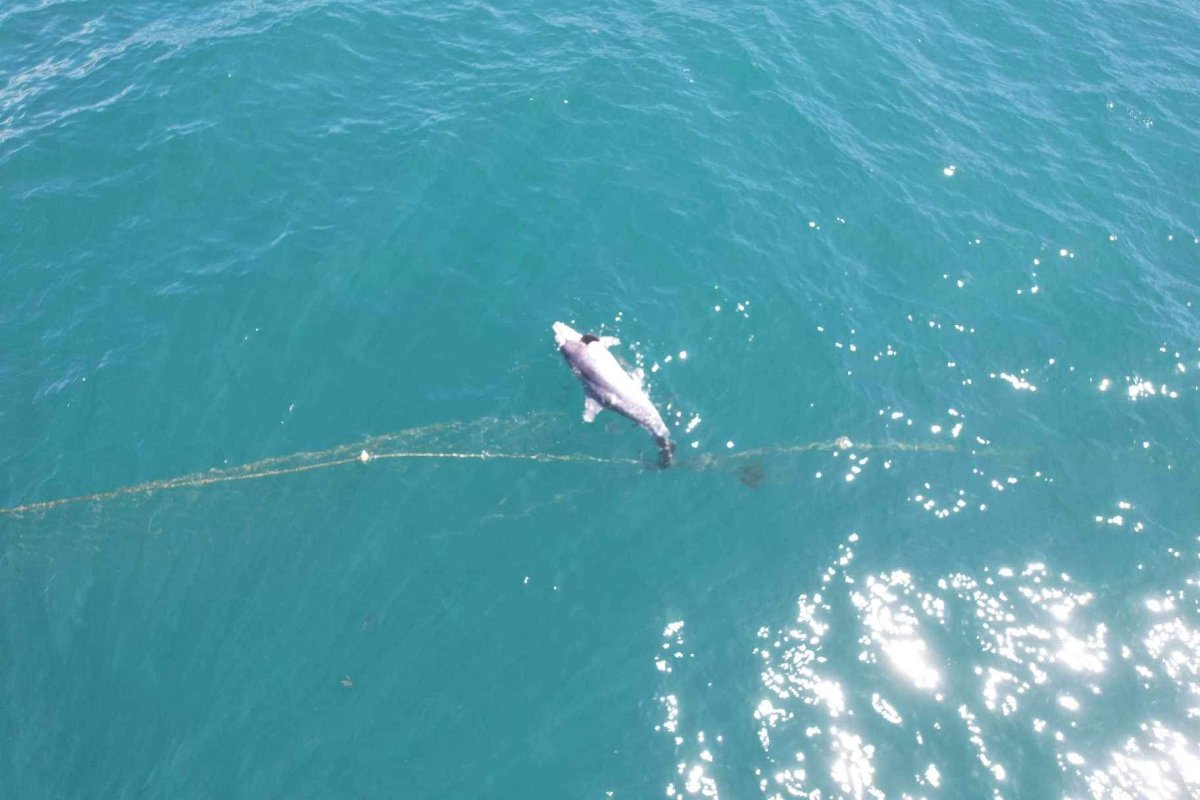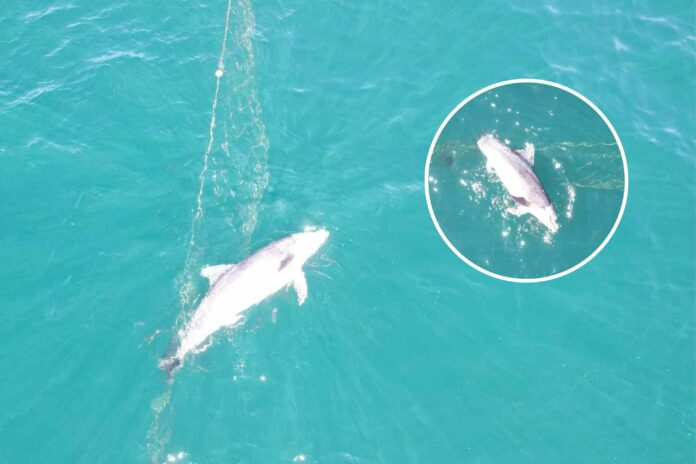A dolphin has been tragically found dead after becoming tangled in a shark net off a beach in Australia.
The unfortunate dolphin was spotted off Thirroul Beach in New South Wales (NSW) by local Peter Armstrong, after which it was determined to be a 7.2-foot-long Indo-Pacific bottlenose dolphin.
Armstrong made his discovery after he sent a drone out to investigate and take a video recording of what appeared to be a motionless figure in the water.
Peter Armstrong
“I popped the drone out and flew it out, and to my horror there was a dolphin stuck in the net,” he told local news outlet ABC Illawarra.
The net belongs to the NSW Department of Primary Industries, which recovered the animal’s body to take samples, before disposing of it out at sea.
Indo-Pacific bottlenose dolphins are found in the Indian and Pacific Oceans, and grow to lengths of around 8 feet. These dolphins are highly social animals and typically form groups called pods, which can range from a few individuals to several dozen in size.
They have complex social structures and exhibit cooperative behaviors such as hunting and protecting one another from predators. While they are not currently considered endangered, Indo-Pacific bottlenose dolphins face various threats, including habitat degradation, pollution, accidental capture in fishing gear (bycatch), and disturbance from human activities such as boat traffic and coastal development.
New South Wales has a number of shark nets across beaches during the summer months, between September to April.
There are 51 nets along the stretch of coast between Newcastle and Wollongong, approximately 140 miles, and appear to be successful at reducing attacks, with only one shark-related fatality being recorded at a netted beach since the protective measures were introduced in 1937.
However, due to the frequent tangling of non-shark marine animals in the nets, many animal rights groups argue that they do more harm than good.
“A massive 89 percent (204) of marine animals caught in NSW’s shark nets last season were non-target species, such as dolphins, turtles, rays and other sharks. One hundred percent of all dolphins which were caught struggled and drowned while waiting for net checks to occur,” Hannah Tait, CEO of animal welfare charity Action for Dolphins, said in a statement.
Between 2022 and 2023, 228 animals were caught in the nets off beaches in New South Wales. However, only 24 were sharks from target species—great white, tiger and bull sharks—according to data from the New South Wales Department of Primary Industries.
The remaining animals included non-target sharks, such as great hammerhead, whaler and Australian angel sharks, as well as rays, turtles, and 10 marine mammals, including dolphins and seals. Over 25 percent of the caught animals were from a protected or threatened species.
“This dolphin would have been desperately trying to free themselves, eventually drowning in their own home. This dolphin’s needless death is a stark reminder of how harmful and redundant shark nets are,” Tait said.
“Relying on shark nets for safety is akin to placing a tissue on your head during a hailstorm. These nets simply don’t work. It’s time for the [local government] to embrace a more sustainable future for our marine wildlife and people alike.”

Peter Armstrong
There are some alternatives to nets that have been suggested, including Shark Management Alert in Real Time (SMART) drumlines, which are baited shark traps that immediately notify scientists when they have captured a shark.
“I’m not in any way wanting to detract from the need for safety, but we can manage this far better for better environmental outcomes,” Lord Mayor of Wollongong, Gordon Bradbery, told ABC Illawarra. “SMART drum lines are the answer and it’s meshing that’s causing all sorts of grief.”
These devices are present at over 300 beaches in NSW. However, many argue that this technology isn’t sophisticated enough to totally replace shark nets, as one trial in Western Australia only caught two great white sharks across a 2-year period.
Do you have an animal or nature story to share with Newsweek? Do you have a question about shark nets? Let us know via [email protected].
Uncommon Knowledge
Newsweek is committed to challenging conventional wisdom and finding connections in the search for common ground.
Newsweek is committed to challenging conventional wisdom and finding connections in the search for common ground.


